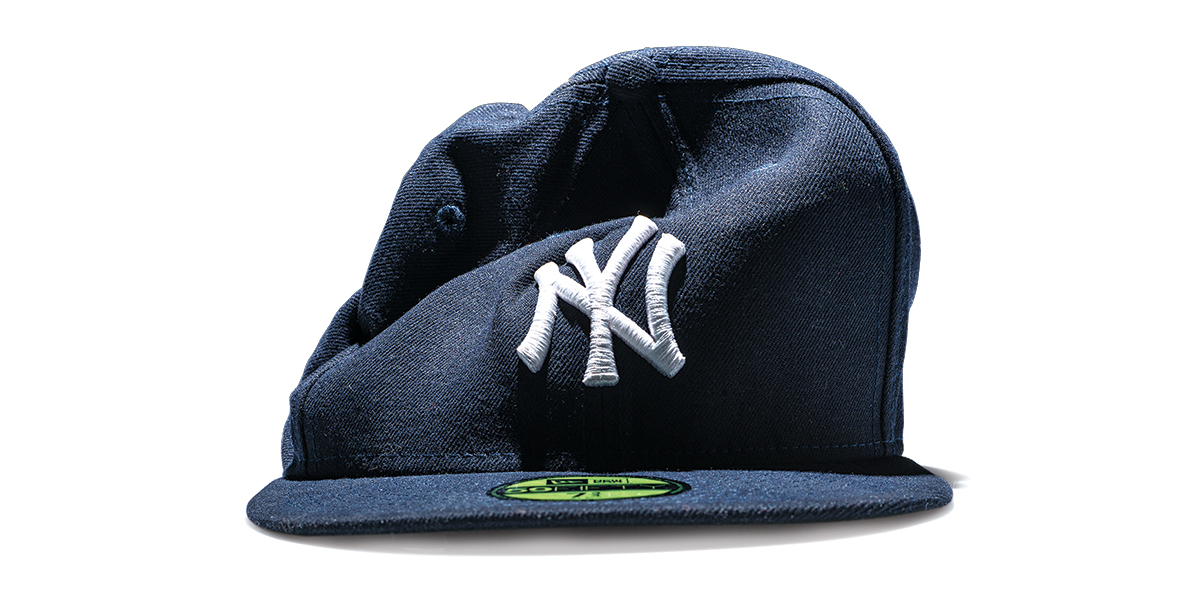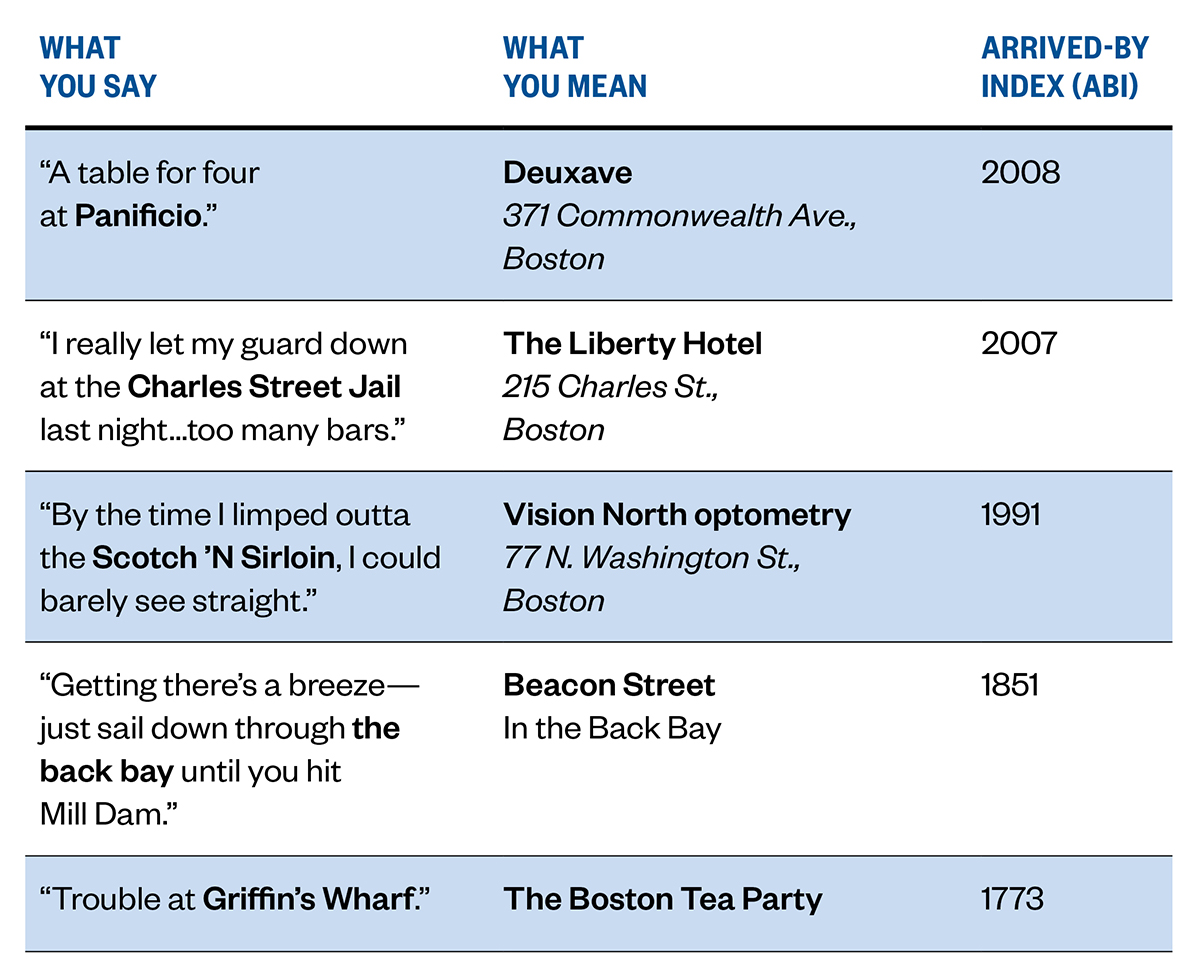How to Be a New Englander

We New Englanders place a premium on how long we’ve been local. It’s why we scramble to trace our ancestry back to the Mayflower (a.k.a. those who found 1620s England too liberal), and give our offspring olde-school monikers like Alden and Oceanus. It’s also why we telegraph our native bona fides by referencing anything “new”as its previous iteration—or better, the one before that. For example, dropping a “Got some gorgeous cod at the Bread & Circus yesterday” conveys pre-2003 cachet. Need an earlier reference? At right, a few to get you started. —Wyndham Lewis

As any Democratic strategist will tell you, the region’s swath of left-leaning politics is far more variegated than the monochromatic blue the country at large sees. Here, a guide to the many faces of Boston’s liberalism. —W.L.
The Blood-Blue Liberal: Invented the “to whom much is given, much is expected” ethos. Prep school and Ivy grad. Money so old that no one recalls where it’s from. Hosts fundraisers with high alcohol-to-hors d’oeuvres ratio. Natural Habitat: Brattle Street, the Boston Athenaeum. Patron Saint: William Bradford. As Seen in: The Collected Works of John Cheever.
The Terror of the Town Meeting: Highly educated intellectual and the most feared zoning-board enforcer west of the Charles. A crusader for public education; sent children to private school. Natural Habitat: Brookline. Patron Saint: Michael Dukakis. As Seen In: Brookline Access Television.
The Brotherhood of Local…: Held a sign at the polls prior to learning to walk. Waxes poetic about his dad’s days in the IBEW. Politics driven by employment, a.k.a. “getting his brother’s kid a job driving a snowplow over at Massport.” Natural Habitat: “Hanover now, but Codman Square really.” Patron Saint: Billy Bulger. As Seen in: Mystic River.
The Spiritual, not Religious: Listens to NPR and MSNBC; quotes voraciously as her own opinions. “Very open-minded” and drawn nearly exclusively to people who share her views. Yoga practice “saved her life” after the divorce. Never been to Chick-fil-A, but boycotting until they support same-sex marriage. Natural Habitat: Brattleboro. Patron Saint: Rachel Maddow. As Seen in: Eat Pray Love.
The Massachusetts Republican: Considered by most of the country to be a Democrat, and by Alabama and Wyoming to be ACLU. Spends time bashing Obama’s anti-business crusade, while apologizing for the national party’s social agenda. Natural Habitat: Concord/Hingham. Patron Saint: Bill Weld. As Seen in: Flomax and Cialis ads.


Photo by Hannah Foslien/Getty Images
Unlike in those sports wastelands where slack-jawed bros get their game-day thrills almost exclusively from the dunks, touchdowns, and home runs, New England fans have long possessed a connoisseur’s taste for the subtle grace notes of the game: the intricate, miniaturist counterpoint of an opposite-field groundout that moves a runner; the delicate two-part harmony of a defensive-minded winger, or a tight end who holds the pocket. We loudly cheer the nuance of every extended pitch count that would go otherwise unnoticed in Atlanta or Los Angeles, where the “LET’S HEAR SOME NOIZZZZE” cues from the Jumbotron are required to, well, hear some noise.
Of course, it’s no coincidence that for the better part of a century the little things were pretty much all we had to cheer. Do we need to be reminded that the Patriots’ greatest player P.B. (pre-Brady) was a left guard named “Hawg” who scored a single career touchdown in 1974? So as the deafening din of futility fades from our collective ear, as we learn to savor the sweet symphony of victory—sometimes in the form of the Dropkick Murphys through tinny Duck Boat speakers—let us not forget the leaner times that we the people lived through that made us appreciate the sac fly. —W.L.


Photo by Toan Trinh
It’s a common misconception that our disdain for the home of A-Rod is simple, that it’s your garden- variety inferiority complex. It is that, of course, but it’s also so much more. To properly hate New York, you have to dig deeper, to summon a whole mess of contradictory and unflattering impulses: cold anger, smugness, defiant provincialism, sophistication, modesty, superiority, hot anger. None of this needs to be consistent or even coherent, nor do your stated reasons for hating that megalopolis to the south. You can hate it because the people there think they’re better than you are, or because they’re not as good as you are. You can hate it because it’s too loud and congested, or because it’s not as loud and congested as it used to be. You can hate it for any reason you want.
Because in the end, hating New York isn’t even about New York. It’s about a pathological need for permanent underdog status, a need inextricably woven into our very being. We’re not underdogs anymore, of course. But if we concede to being the regional superpower we are, that carefully cultivated self-image, so lovingly fertilized with spite and resentment for so many generations, goes right out the window, leaving us with only ourselves. So say it again: Yankees suck. —J.K.



